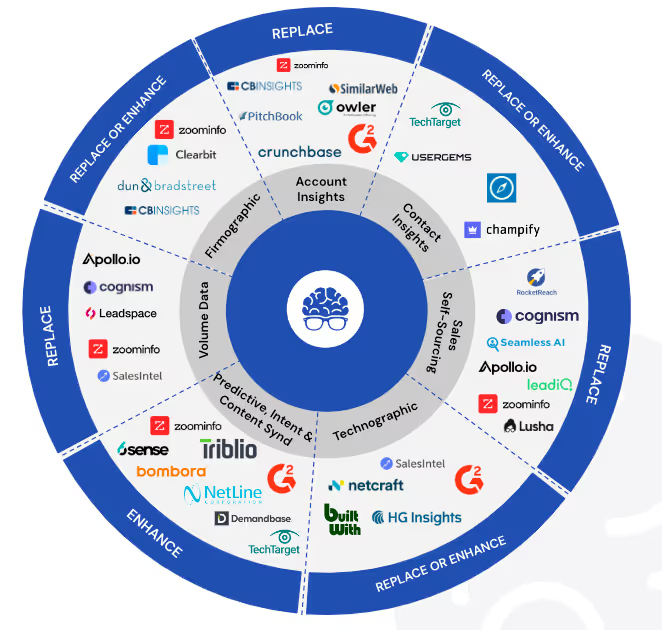The e-commerce sector, characterized by its dynamic multichannel landscape and the variety of its go-to-market (GTM) strategies, presents a unique set of challenges for sales and marketing teams. Understanding these challenges is essential for crafting effective strategies that resonate with e-commerce businesses.
1. Multichannel Complexity
Unlike traditional retail, e-commerce operates across multiple online platforms. From giants like Amazon to specialized boutiques hosted on platforms like Shopify or WooCommerce, each channel has its own dynamics and customer base. This diversity requires businesses to adopt flexible marketing strategies tailored to each platform's unique environment and audience. However, this complexity can make it difficult for B2B data providers to track and analyze consistent metrics across channels, complicating targeted outreach efforts.
2. Seasonality and Product Variability
E-commerce is highly susceptible to seasonality, with consumer demand for certain products peaking at specific times of the year. This fluctuation affects inventory management, marketing strategies, and revenue forecasts. For sales teams, this means timing their outreach can be crucial. Selling winter sports equipment in spring may not yield fruitful discussions. Understanding these seasonal trends requires real-time data and insights, often not available through traditional data providers.
3. Tracking Revenue and Performance Metrics
E-commerce businesses often have complex and sometimes opaque financial structures, especially if they operate on multiple platforms. Revenue tracking becomes complicated due to various payment gateways and international sales, making it difficult for sales teams to gauge a prospect’s financial health or buying capacity accurately.
4. Varied GTM Motions
E-commerce companies employ a range of GTM strategies, from direct-to-consumer to wholesale and everything in between. Some might focus exclusively on Amazon or operate solely through their own direct channels. This variance not only impacts how these companies can be approached but also challenges data providers who often lack the granularity to adapt to such diverse GTM strategies. The absence of ecommerce as a specific industry category in many databases like Zoominfo further complicates segmentation and outreach.
5. Scarce Contact Details
Finding reliable contact information for key decision-makers in e-commerce can be notoriously difficult. Unlike B2B businesses where LinkedIn and corporate websites provide ample contact points, e-commerce often shields its operatives behind customer service layers. Direct contacts for strategic partnerships or sales discussions are not readily available, posing a significant hurdle in initial outreach efforts.
6. Limited Representation in Traditional Databases
A major impediment is the lack of a dedicated "e-commerce" industry category in many pre-built databases. This oversight means that e-commerce businesses are often miscategorized or lumped together with broader retail or technology sectors, making it challenging to target them accurately. For data-driven sales strategies, the absence of bespoke categories such as e-commerce indicates a gap in traditional data provisioning services.
Conclusion
Selling to e-commerce businesses requires a nuanced understanding of the sector’s unique challenges and a bespoke approach to data gathering and analysis. As e-commerce continues to evolve, the ability of sales teams to adapt to its dynamic environment will depend increasingly on their access to customized, real-time data that can capture the intricacies of this vibrant industry. For companies like LeadGenius, which specialize in providing bespoke data and insights, the future lies in addressing these gaps, offering tailored solutions that traditional data lakes like Zoominfo and Apollo currently fail to provide. This shift towards custom insights will not only enhance targeting capabilities but also empower GTM teams to engage with ecommerce platforms more effectively, turning challenges into opportunities for growth.




